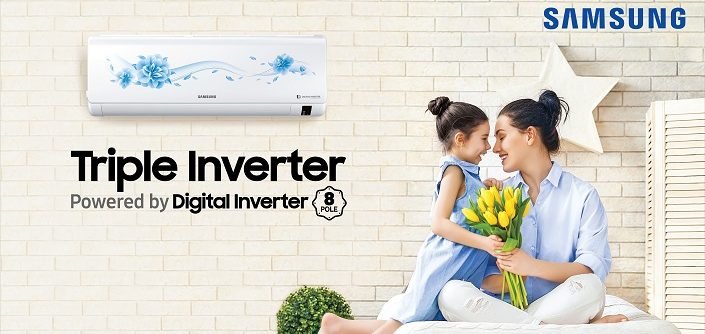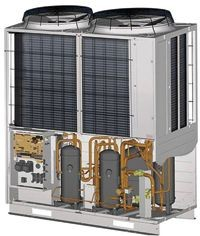Sustainability in HVAC systems revolves around minimizing their environmental impact while maintaining occupant comfort and energy efficiency. Here’s a detailed look at various aspects that contribute to sustainable HVAC design and operation:
1. Energy-Efficient Equipment and Technologies:
- High-Efficiency Equipment: Modern HVAC systems utilize components like variable speed drives (VSDs) in fans and compressors. VSDs adjust motor speeds based on demand, reducing energy consumption significantly.
- Heat Pumps: These versatile systems can provide both heating and cooling, extracting heat from the environment for heating and rejecting heat to the outdoors for cooling. This reduces reliance on conventional heating methods that often use fossil fuels.
- Geothermal Systems: By leveraging the constant temperature of the earth below the surface, geothermal heat pumps offer highly efficient and sustainable heating and cooling throughout the year.
2. Renewable Energy Integration:
- Solar Power: Photovoltaic (PV) solar panels can generate electricity to power HVAC systems, significantly reducing reliance on the grid and its associated carbon footprint.
- Geothermal Energy: Ground source heat pumps can utilize the earth’s constant temperature for both heating and cooling, offering a highly sustainable and efficient solution.
3. Building Design and Optimization:
- Improved Building Envelopes: Buildings with superior insulation, air sealing, and strategically placed windows minimize heat gain or loss, reducing the overall load on the HVAC system. This translates to lower energy consumption.
- Passive Design Strategies: Techniques like proper building orientation, natural ventilation, and shading can significantly reduce the need for mechanical heating and cooling, leading to a more sustainable approach.
4. Smart Controls and Building Automation Systems (BAS):
- Smart Thermostats: Programmable and occupancy sensors in thermostats allow for automatic temperature adjustments based on occupancy schedules and weather conditions, optimizing energy usage.
- Building Automation Systems (BAS): These sophisticated systems integrate various aspects of a building’s operations, including HVAC. BAS can monitor and optimize system performance in real-time, leading to significant energy savings.
5. Maintenance and Operational Practices:
- Regular Maintenance: Proper maintenance ensures optimal performance of the HVAC system, preventing energy inefficiency and breakdowns.
- System Upgrades: Upgrading older, inefficient systems with newer, more energy-efficient models can yield significant long-term benefits in terms of energy savings and environmental impact.
- Occupancy Awareness: Encouraging occupants to adopt sustainable practices like using natural light and adjusting thermostats when leaving a room can contribute to overall energy reduction.
Benefits of Sustainable HVAC Systems:
- Reduced Energy Consumption: Sustainable HVAC systems translate to lower energy bills and a minimized environmental footprint.
- Improved Indoor Air Quality: Proper ventilation and filtration systems within sustainable HVAC designs promote a healthier indoor environment for occupants.
- Enhanced Comfort: Modern HVAC systems with smart controls can maintain consistent and comfortable temperatures while optimizing energy usage.
- Increased Building Value: Buildings with sustainable HVAC systems are often more attractive to tenants and buyers due to their lower operating costs and environmental benefits.
Challenges and Considerations:
- Initial Investment Costs: While sustainable technologies offer long-term savings, the upfront cost of implementing them can be higher compared to traditional systems.
- Building Compatibility: Integrating renewable energy sources or newer technologies might require modifications to existing buildings, posing potential challenges.
- Skilled Labor: Designing, installing, and maintaining sustainable HVAC systems often requires specialized skills and training for technicians.
Conclusion:
Sustainable HVAC design prioritizes strategies that minimize environmental impact while maintaining occupant comfort and energy efficiency. By utilizing advanced technologies, renewable energy sources, smart controls, and mindful practices, we can create HVAC systems that contribute to a more sustainable future for our built environment.
Looking to install a commercial HVAC System or Duct work in your Business Area?
Contact Vipul Ac to learn about our HVAC Service
Call +91 9825636606 Today.


